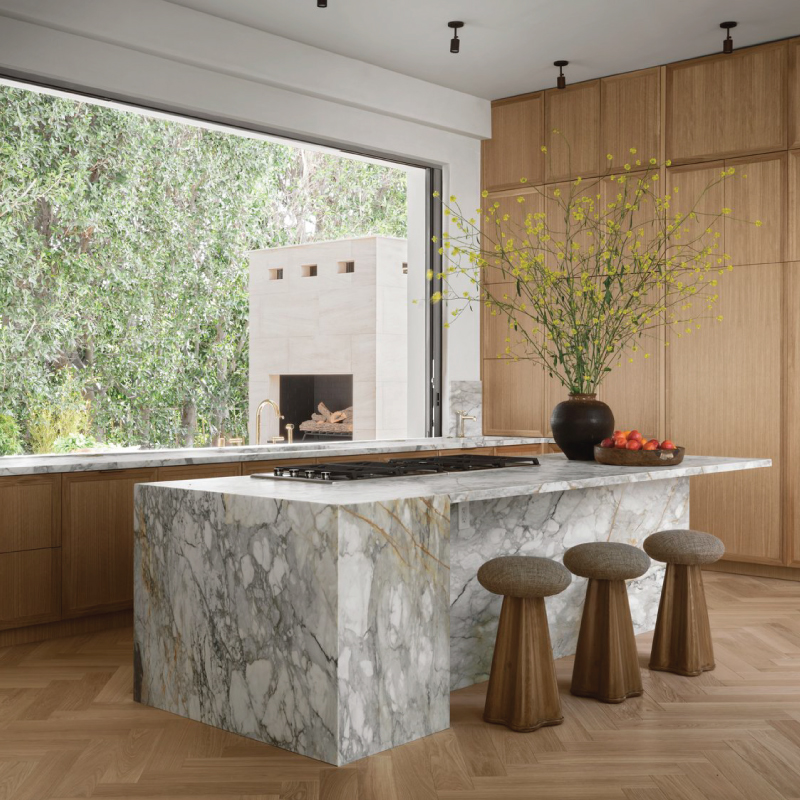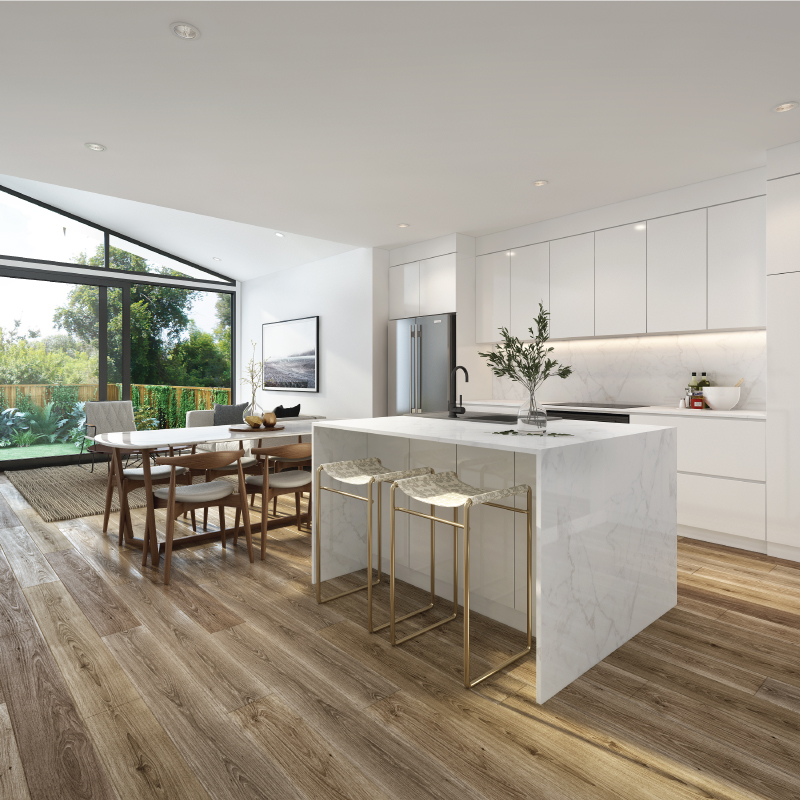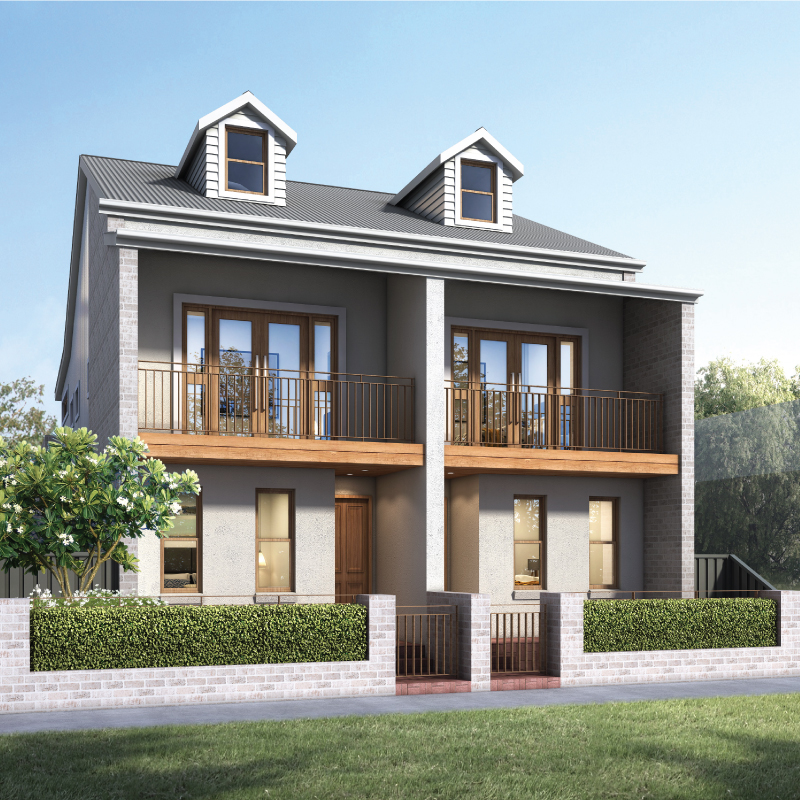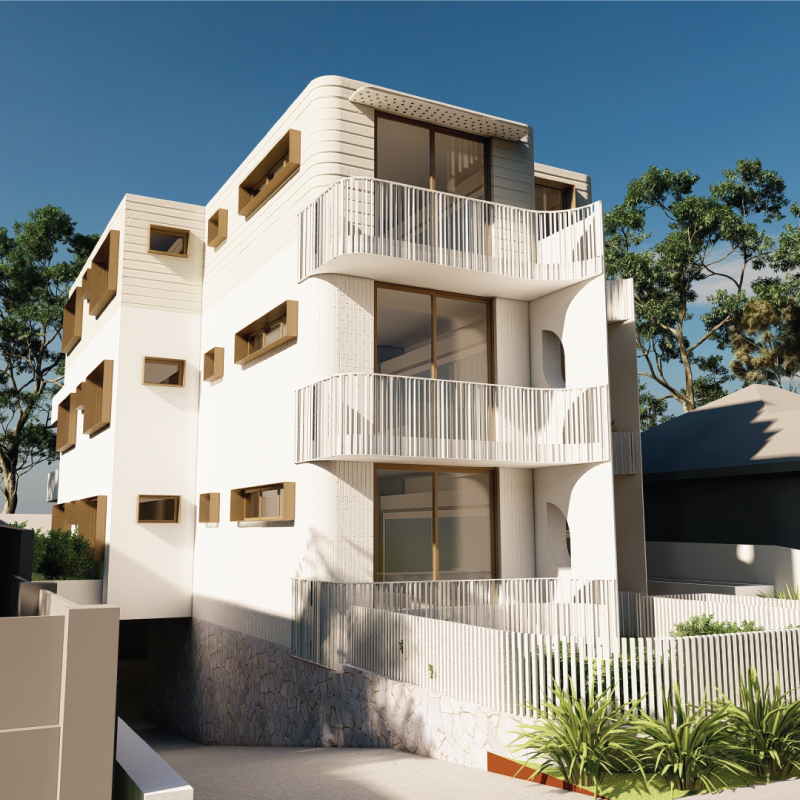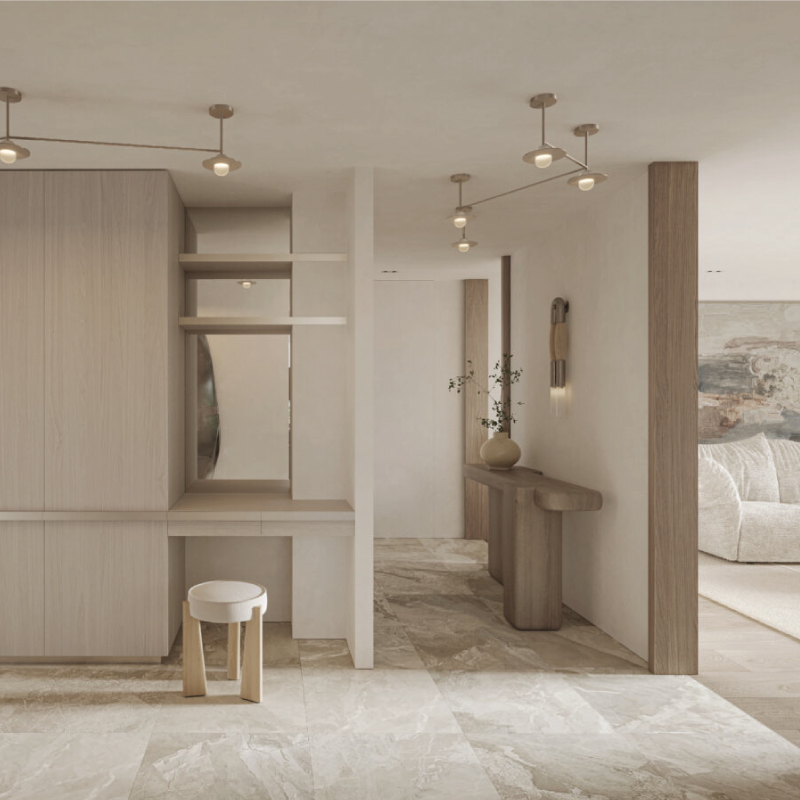
Tridas Projects is a consultancy service that specialises in assisting clients who are purchasing, renovating, or building. We believe in adding value to every conversation, achieved by partnering the Tridas team with you.
Our knowledge and experience span over 20 years in the Australian property market. Our proven approach provides an exclusive gateway to benefit from the insights and lessons we’ve gathered over the years.
A comprehensive process and strong foundation are reinforced by a team of over 80 experienced industry experts from a wide range of specialist fields all working together to make every Tridas Project a success.

EXPERIENCES
"Working with David has been a game-changer for my business. His insights into property investment have helped me make informed decisions and achieve impressive returns on my investments."
Dr Rhodes, Melbourne Sydney
"Partnering with Tridas Projects opened doors to a network of trusted professionals, from solicitors to accountants. Their ability to connect investors with external contacts streamlines the entire investment process."
Tori & Justin, Sydney Australia
"In a competitive market, Tridas consultants stand out for their innovative strategies and unwavering commitment to client success. Their expertise has been instrumental in growing our investment portfolio."
Sandy and Con, Sydney Australia
"One of the things I appreciate most about Andrew and the team is their transparency about both successes and failures. Their honesty and willingness to learn from setbacks sets them apart in the industry."
Dr Allan and Dr Maryanne, Sydney Australia
"Chris and the team not only understand the market but also understand their client's needs like no other. Their personalised approach to property development ensured that every step of the process was tailored to my goals."
Thomas, Sydney Australia
"I can't recommend Edwin and the team highly enough. Their comprehensive approach to property development and investment gave me the confidence to take my portfolio to new heights."
Dr Hannah, Sydney Australia
"Tridas Projects doesn't just talk property; they build relationships. Their dedication to understanding each client's unique vision ensures that every project exceeds expectations."
Fiona & Timothy, Sydney Australia
"The Tridas consultants go above and beyond in assisting developers of all sizes. Whether you're a small-scale investor or a large developer, your attention to detail and commitment to success remain unwavering. We were referred by a mid-scale developer who uses Tridas consultants and we have been very impressed so far"
Chistina & Mitch, Melbourne Australia
"Working with the Tridas Projects team was a game-changer for my property investment journey. Their expertise in unlocking the potential of properties helped me build a lucrative portfolio faster than I ever imagined."
Wendy & Simon, Sydney Australia
"Thanks to Tridas Projects, I've seen incredible successes in my property investments. Their guidance and support have been invaluable in navigating both the highs and lows of the market"
Samantha & Leslie, Queensland Australia
"I cannot thank Tridas Projects enough for their support and guidance throughout my property development journey. From navigating through challenges to celebrating successes, they were there every step of the way, ensuring I maximised my returns."
Jayden, Melbourne Australia
"Working with Tridas Projects was a transformative experience for us. Not only did they help us build a successful property portfolio, but they also provided invaluable mentorship and support, ensuring our growth as a property investor."
Tanya & Amanda, Sydney Australia
EXPERIENCES
PROPERTY CONSULTANCY
The Tridas Projects consultancy service caters to individuals and businesses within the property sector. Our diverse client base includes individuals seeking to understand their equitable potential and navigate the intricacies of ‘the process’, as well as seasoned investors and developers looking to streamline and maximise their investments.
At the other end of the spectrum, our consultancy provides valuable insights to larger investors and developers, augmenting their teams with fresh perspectives and strategies to optimise project outcomes.
Our consultancy service answers all your questions in a language that is easy to understand and follow. We aim to share our professional and personal experiences, so you can avoid the common costly pitfalls while maximising your return and saving valuable time.
Our clients describe our service as;
“Imagine having a real estate agent, solicitor, accountant, financial planner, builder, bank, architect and more in the room at the same time…that’s the Tridas consultancy experience”
The DA Process
The Development Application (DA) process involves several steps when applying for council approval to undertake development or construction projects.
The DA process aims to balance the interests of developers, the community, and the environment while ensuring that new developments comply with relevant planning regulations and contribute positively to the urban fabric of Sydney.
Investment vs Development
Property investment and property development are two distinct facets of the real estate industry, each with its own set of characteristics and objectives.
Property investment involves acquiring real estate assets primarily for the purpose of generating passive income through rental yields or capital appreciation over time. Investors typically seek properties with steady cash flows and growth potential, often diversifying their portfolios across various asset classes such as residential, commercial, or industrial properties.
On the other hand, property development involves the active process of creating or enhancing real estate assets through construction, renovation, or redevelopment. Developers aim to maximise the value of the property by adding improvements or optimising its use, with the ultimate goal of selling or leasing the developed property for profit.
While both avenues offer opportunities for wealth creation in the real estate market, they require different skill sets, risk profiles, and investment strategies.
Know Your Buyer
In property development, understanding your end buyer is very important. It’s not just about constructing a physical structure; it’s about crafting a living space that resonates with the desires and needs of your target market.
Whether it’s a family seeking a comfortable home, investors eyeing rental income, or professionals searching for a convenient location, knowing your end buyer shapes every decision from design to marketing.
By comprehending their preferences, lifestyle, and purchasing behaviour, developers can tailor their projects to fulfil expectations, ensuring not just a sale but also satisfaction and loyalty from their clientele.
Development Application (DA)
A development application (DA) is a formal request submitted to the local government authority seeking approval for construction, renovation, or other changes to a property.
This process ensures that proposed developments comply with zoning regulations, building codes, and planning policies. The DA typically includes detailed plans, environmental impact assessments, and other relevant documentation for review by local authorities and the community.
Approval of a DA is necessary before any significant construction or alterations can proceed.
Complying Development Certificate (CDC)
The Comply Development Certificate (CDC) typically involves a streamlined procedure for minor developments, focusing on ensuring compliance with local regulations and standards. It offers a quicker pathway for straightforward projects, often bypassing the need for a full DA application.
Building Certifier
A building certifier plays a crucial role in ensuring that buildings comply with relevant laws, regulations, and standards. Their primary responsibility is to assess and approve building plans, inspect construction work at various stages, and issue certificates of compliance or occupancy once the building is completed.
They ensure that buildings are safe, structurally sound, and meet environmental and accessibility requirements. Building certifier’s act as independent authorities, providing impartial assessments to protect public safety and uphold building standards in the urban landscape.
Buy, sell or rent
When considering whether to buy, sell, or rent residential property, several factors should be thoroughly evaluated to make an informed decision.
By addressing these aspects in detail, individuals can make a well-informed decision tailored to their specific situation, maximising the benefits and minimising the risks.
Demolition
The demolition process of a residential property for a new development typically begins with site preparation, including securing necessary permits and utility disconnection. Next, hazardous materials like asbestos are removed, followed by the disconnection of utilities and salvageable materials. Heavy machinery, such as excavators and bulldozers, is then used to tear down the structure systematically. Debris is cleared, and the site is graded to prepare for construction.
Throughout the process, safety measures are paramount to protect workers and neighboring properties. Environmental considerations, such as waste management and dust control, are also addressed to minimise impact. Finally, the site is ready for the new development, marking the transition from demolition to construction phase.
Construction Process
The construction process of a residential property typically involves several key stages. It begins with site preparation, including clearing the land and leveling the ground. Next comes laying the foundation, which provides the structural support for the building. Once the foundation is set, the framing begins, where the basic structure of the house is built, including walls, floors, and roof. Following framing, the installation of utilities such as plumbing, electrical, and HVAC systems takes place.
Then, exterior and interior finishes are added, including siding, roofing, drywall, flooring, and paint. Finally, fixtures and fittings such as doors, windows, cabinets, and appliances are installed, and landscaping is completed to enhance the property’s curb appeal. Throughout the process, inspections are conducted to ensure compliance with building codes and standards.
Equity
Understanding equity is paramount for anyone delving into property investment. Equity represents the portion of your property that you truly own, free from any debts or liabilities. It serves as a pivotal indicator of your investment’s potential for growth and leverage.
By comprehending equity, investors can strategically manage their properties, unlocking opportunities for refinancing, leveraging assets for further investments, or even maximising returns through renovations or improvements. It forms the bedrock of wealth accumulation and financial stability in the realm of real estate, guiding investors towards informed decisions and sustainable growth in their portfolios.
Location Location Location
Location is the foundation of property development, serving as the decifer upon which the success or failure of a project often rests. A prime location can elevate a property’s value, attractiveness, and functionality, while a less favourable one can pose significant challenges. Proximity to amenities, transportation hubs, schools, and employment centres directly influences demand and desirability.
Additionally, factors such as neighbourhood safety, environmental considerations, and zoning regulations profoundly impact development prospects. Understanding the dynamics of location allows developers to strategically align projects with market demands, maximise returns on investment, and create vibrant, sustainable communities that thrive for generations.
Ultimately, in the world of property development, location isn’t just a consideration—it’s the crucial factor that shapes the entire endeavour.
Renovating Vs New Build
Renovating a residential property involves making improvements or upgrades to an existing structure, which may include repairing, updating, or modifying various aspects of the building such as its layout, fixtures, or finishes. This typically involves working within the constraints of the existing framework and may require dealing with issues like structural integrity, code compliance, and compatibility with the original design.
On the other hand, constructing a new building involves starting from scratch, allowing for more flexibility in design and layout. While it offers the opportunity to create a customised space tailored to specific needs and preferences, it also entails higher costs, longer timelines, and potential challenges related to obtaining permits and approvals.
Ultimately, the choice between renovating and building new depends on factors such as budget, timeline, and the extent of desired changes.
Finishes
Choosing the appropriate materials for property development is paramount, as it directly impacts both the project’s success and its financial viability.
Overcapitalising occurs when expensive materials are used excessively, surpassing the property’s market value and potential return on investment. Conversely, undercapitalizing can result in subpar construction quality, diminishing the property’s appeal and resale value.
By carefully selecting materials tailored to each development’s context, such as location, target market, and intended use, developers can strike a balance between cost-effectiveness and quality. This strategic approach not only ensures optimal returns but also enhances the property’s durability, aesthetics, and overall desirability in the market, ultimately maximising its long-term value.
Staging & Marketing
Property styling and marketing play pivotal roles in the successful sale of a property. Effective styling enhances the visual appeal of a space, allowing potential buyers to envision themselves living in the property. It creates an emotional connection and highlights the property’s best features, maximising its perceived value.
Furthermore, strategic marketing ensures that the property reaches a wide audience, increasing the likelihood of attracting serious buyers. Professional photography, virtual tours, and engaging property descriptions are essential components of an effective marketing strategy, enticing prospective buyers and generating interest in the property.
Together, property styling and marketing create a compelling narrative that showcases the property’s potential, ultimately facilitating a faster and more profitable sale.
Off the Plan Vs Completed
Off-the-plan properties and completed properties differ primarily in their stage of construction and readiness for occupancy. Off-the-plan properties are those that are purchased before construction is complete or even begun. Buyers typically purchase based on floor plans, artist impressions, and developer promises. While this offers potential for customisation and sometimes lower prices, there’s also an element of risk due to uncertainties in the final outcome.
On the other hand, completed properties are ready for immediate occupancy or use. Buyers can physically inspect the property and assess its quality, layout, and amenities before making a purchase decision. Although completed properties often come at a higher price point, buyers benefit from certainty regarding the property’s condition and immediate availability.
Project Vs Custom Builder
Custom builders and project builders are two distinct entities in the realm of construction, each offering unique approaches to fulfilling the needs of clients.
Custom builders specialise in creating bespoke homes tailored to the specific desires and requirements of individual clients. They prioritise personalisation, allowing clients to have full control over the design, materials, and features of their dream home.
In contrast, project builders focus on efficiency and volume, constructing multiple homes based on pre-designed floor plans within planned developments.
While project builders offer cost-effective solutions and streamlined processes, custom builders offer unparalleled flexibility and creativity, resulting in homes that truly reflect the unique vision of their owners.
Site Acquisition
Site acquisition is the pivotal first step in any real estate development or infrastructure project, determining its success and feasibility. It involves identifying, evaluating, and securing suitable land or property for the intended purpose.
The importance of site acquisition lies in its direct impact on project timelines, costs, and outcomes. A well-chosen site can enhance property value, attract customers, and optimise operational efficiency. Conversely, poor site selection can lead to delays, increased expenses, and sub-optimal outcomes.
Therefore, meticulous planning and due diligence in site acquisition are crucial to ensure the viability and success of any project.
Excluded Construction Considerations
Understanding exclusions in a building contract is paramount as they delineate what is not included in the scope of work, clarifying responsibilities and avoiding misunderstandings. These exclusions can range from specific materials or fixtures not provided to limitations on services such as landscaping or interior design.
Clear comprehension ensures that both parties, the client and the builder, have aligned expectations, mitigating disputes and delays. It also empowers clients to make informed decisions regarding additional costs or necessary arrangements for excluded items, ultimately fostering smoother project management and successful outcomes.
Strategy
Having a strategy is crucial for anyone venturing into property investment. It serves as the guiding beacon amidst the ever-changing landscape of the real estate market. A well-thought-out strategy helps investors define their objectives, whether it’s capital appreciation, rental income, or diversification of their portfolio.
It provides clarity in decision-making, ensuring that investments align with personal goals and risk tolerance. Moreover, a strategy aids in mitigating potential risks by anticipating market fluctuations and identifying opportunities for growth.
In essence, it’s the blueprint that transforms aspirations into tangible achievements in the dynamic world of property investment.
Fixed and Variable Costs
Understanding both fixed and variable costs is crucial when considering property acquisition, particularly for development projects. Fixed costs encompass expenses that remain constant regardless of the level of production or development, such as stamp duty or mortgage payments.
Variable costs, on the other hand, fluctuate with the scale of the project, like construction materials or labor costs. Knowing these costs plus allowing a buffer helps developers accurately assess the financial feasibility of a project, determine the potential return on investment, and mitigate risks.
Ignoring either fixed or variable costs could lead to underestimating expenses, resulting in financial strain or project failure. By comprehensively understanding these cost dynamics, developers can make informed decisions, optimise resource allocation, and ultimately maximise the profitability of their property investments.
Finance & Legal Team
Having a competent accountant, solicitor, and finance broker as part of your backend property development team is crucial for success in the real estate industry.
An adept accountant ensures that your finances are meticulously managed, providing insights into tax strategies, cash flow management, and financial planning, thus optimising profitability and minimising risks.
A proficient solicitor navigates the legal intricacies of property transactions, ensuring compliance with regulations, drafting watertight contracts, and resolving any legal disputes swiftly and efficiently.
Meanwhile, a skilled finance broker facilitates access to funds, negotiating favourable terms for loans, mortgages, and other financial instruments, enabling smooth funding for your projects.
Together, these professionals form the spine of your property development team, safeguarding your interests and fostering the seamless execution of your ventures.
Subdivision Process
The subdivision process for a dual occupancy development involves several key steps to legally divide a single property into two separate lots. Firstly, it typically begins with obtaining necessary permits and approvals from local authorities. Next, a licensed surveyor assesses the property boundaries and creates a plan for the subdivision, ensuring compliance with zoning regulations and other relevant laws.
Finally, legal documents are filed to officially establish the two new lots, allowing for individual ownership and potential sale or development of each unit independently. Throughout this process, adherence to local council and planning regulations and coordination with various stakeholders are essential for a successful subdivision of the property.
Funding
Funding is the lifeblood of any residential development project, serving as the essential fuel that propels it from concept to completion. Without adequate funding, even the most promising development plans may falter before they ever materialise.
Funding facilitates crucial aspects such as land acquisition, construction costs, permits, and infrastructure development. It enables developers to navigate the complexities of the real estate market, weathering fluctuations and unforeseen challenges.
Moreover, funding ensures that projects can meet the high standards of quality and safety expected in residential developments, ultimately shaping communities and enhancing quality of life for residents. In essence, funding is not just a financial requirement; it’s the cornerstone upon which successful residential developments are built.
Contact us now
Architect
Exterior and interior design play pivotal roles in residential development, shaping not only the aesthetics but also the functionality and ambiance of living spaces.
The exterior design sets the tone for the neighborhood, establishing its identity and curb appeal. It reflects the architectural style, landscaping, and overall atmosphere, influencing perceptions of value and community cohesion.
Meanwhile, interior design transforms houses into homes, optimizing layouts for comfort, efficiency, and personal expression. Thoughtful interior design enhances functionality, promotes well-being, and fosters emotional connections with living spaces.
Together, exterior and interior design elevate the quality of life in residential developments, creating environments that are both visually pleasing and functionally enriching.
Town Planning
Town planners play a pivotal role in shaping the development landscape. Their expertise lies in navigating complex regulatory frameworks and balancing the interests of various stakeholders to ensure sustainable and cohesive urban growth.
They facilitate the development application process, ensuring projects adhere to zoning regulations, environmental considerations, and community needs.
By meticulously evaluating proposals and advocating for smart design solutions, town planners contribute to the creation of vibrant, livable spaces that enhance the quality of life for residents while preserving the city’s unique character and natural beauty.
Council
Properly engaging with the local council in residential development is paramount for several reasons.
Firstly, it ensures compliance with zoning regulations, building codes, and other legal requirements, mitigating the risk of costly delays or fines. Secondly, collaborating with the council fosters community goodwill by addressing concerns and incorporating local needs into the development plans, leading to smoother project execution and potentially faster approvals.
Additionally, working closely with the council can streamline the permitting process, facilitating timely construction and ultimately enhancing the project’s success. Overall, proactive and respectful engagement with the local council is indispensable for achieving a harmonious balance between the development’s goals and the community’s interests.
Construction Certificate (CC)
A construction certificate is a vital document in the realm of development applications, serving as official approval for the commencement of construction on a project. It signifies that proposed works align with relevant regulations, codes, and approved plans.
Issued by your local council or a certified private certifier, this certificate confirms that the proposed construction meets safety standards and environmental requirements.
Its issuance marks a crucial milestone, granting the green light for the transformation of architectural blueprints into tangible structures, ensuring compliance and safeguarding the integrity of the built environment.
PROJECTS
Discover the evolution of residential property development in Australia over the past two decades through a snapshot of our past projects. From sleek urban terraces to sprawling suburban oasis’s, our portfolio reflects the diversity and innovation of Australian luxury living.
Through our property consultancy, explore how our experiences have shaped neighborhoods, enhanced lifestyles, and set new standards in design and sustainability. With a commitment to quality craftsmanship and forward-thinking design, we invite you to journey through our collection of past successes and envision the possibilities for future living.
BUSINESS CONSULTANCY
Welcome to our business consultancy service designed to fuel the growth and development of small to medium-sized businesses (SMBs). Having helped hundreds of businesses in a multitude of markets, we’re here to support you through every stage of your business journey, from inception to exit. Whether you’re looking to cultivate a thriving company culture, expand your market reach, or strategies for a successful exit, our team offers comprehensive guidance and solutions tailored to your specific needs and objectives.
From fostering a culture of innovation and growth to optimising operational efficiency and refining your strategies, we’re committed to helping your business flourish in today’s dynamic environment. With our expertise and personalised approach, we empower SMBs to navigate challenges, capitalise on opportunities, and achieve sustainable growth. Let us partner with you on your path to success.
Strategy
Strategy is the compass that guides businesses through the dynamic landscape of growth. It’s the blueprint for success, defining the direction, goals, and tactics necessary to thrive amidst competition and uncertainty.
Without a well-crafted strategy, businesses risk drifting aimlessly, reacting to immediate challenges without a clear vision for the future. Effective strategy aligns resources, capabilities, and aspirations, empowering organisations to make informed decisions, capitalise on opportunities, and navigate obstacles with resilience.
In essence, strategy is the heartbeat of business, pulsating with foresight, adaptability, and purpose, ensuring sustainable growth and prosperity in an ever-evolving marketplace.
Cashflow
Cash flow is the lifeblood of any business, serving as the essential gauge of financial health and sustainability. It represents the movement of money in and out of a company, encompassing revenue, expenses, investments, and debt repayments.
A positive cash flow ensures that a business can meet its obligations, such as paying suppliers, employees, and creditors, while also fueling growth initiatives.
Conversely, a negative cash flow can signal trouble, hindering operations and potentially leading to insolvency.
Effectively managing cash flow is vital for businesses to navigate economic fluctuations, seize opportunities, and ultimately thrive in the competitive landscape.
Quality
Quality serves as the cornerstone of customer satisfaction, loyalty, and ultimately, the longevity of a brand. Consistently delivering high-quality products or services not only fosters trust among consumers but also enhances the reputation of the company.
Moreover, in an increasingly competitive market, quality becomes a distinguishing factor, setting a business apart from its rivals. It not only attracts new customers but also retains existing ones, leading to sustained growth and success. Therefore, prioritising quality in every aspect of a product or service is not just advisable; it’s essential for thriving in the modern business world.
Data Mastery
Understanding your data is paramount in business as it serves as the bedrock for informed decision-making. By comprehending the intricacies and patterns within your data, businesses gain invaluable insights into customer behavior, market trends, and operational efficiencies. This understanding enables organisations to identify opportunities, mitigate risks, and optimise strategies effectively.
Without a grasp of their data, businesses risk making decisions based on guesswork rather than evidence, potentially leading to missed opportunities and costly errors. In today’s data-driven world, the ability to interpret and leverage data is not just advantageous but essential for maintaining a competitive edge and driving sustainable growth.
Franchise
Franchising offers a dynamic business model where a franchisor grants the rights to a franchisee to sell its products or services under an established brand. This symbiotic relationship leverages the franchisor’s proven business system, brand recognition, and ongoing support, while empowering the franchisee with a ready-made blueprint for success.
Franchising facilitates rapid expansion, tapping into local market insights and entrepreneurial spirit. It fosters consistency across locations while allowing for customisation to meet regional preferences.
Moreover, it spreads risk by distributing investment and operational responsibilities between the franchisor and franchisee. Ultimately, franchising provides a win-win scenario, driving mutual growth and prosperity for both parties involved.
Sales Strategies
Sales strategies are the driver of any business, serving as the roadmap to achieving revenue goals and sustaining growth. These strategies encompass a diverse range of approaches tailored to attract and retain customers, optimise conversions, and foster long-term relationships.
From identifying target markets to deploying effective communication channels, sales strategies empower businesses to navigate competitive landscapes and capitalise on emerging opportunities.
They not only derive revenue but also enhance brand reputation and market positioning. In essence, sales strategies are the cornerstone of business success, guiding companies towards profitability and sustainability in an ever-evolving marketplace.
Office Layout
A well-designed office layout is crucial for fostering productivity, collaboration, and employee well-being within a business. A thoughtfully arranged workspace can optimise workflow efficiency, minimise distractions, and enhance communication among team members.
Moreover, an aesthetically pleasing and comfortable environment can contribute to employee satisfaction and morale, leading to higher retention rates and overall organisational success. By investing in a good office layout, businesses can create an atmosphere conducive to innovation, creativity, and ultimately, achieving their goals.
Success from the Top
A business’s success is like a symphony, orchestrated from the top down, where every note plays a crucial role in its harmonious melody. It all begins with visionary leadership at the helm, setting the tone, direction, and values that define the company’s identity.
From there, strategies and goals are crafted, cascading down through the organisation like streams flowing into a river. Each department and employee acts as a tributary, contributing their skills, expertise, and dedication, all converging towards the common goal of success.
Effective communication, transparent leadership, and a shared commitment to excellence ensure that every element of the business functions in concert, creating a powerful force that propels the company forward towards achievement and growth.
Culture
Culture is the heartbeat of any business, shaping its identity, values, and interactions. It serves as the guiding force behind employee behavior, decision-making processes, and ultimately, the success of the organisation.
A strong and inclusive culture fosters unity, trust, and collaboration among team members, leading to higher employee engagement, productivity, and retention.
Moreover, culture influences how a company is perceived by customers, partners, and the wider community, playing a crucial role in building brand reputation and loyalty.
In today’s dynamic business landscape, where innovation and adaptability are paramount, a thriving organizational culture is not just a competitive advantage but a cornerstone for sustainable growth and resilience.
Price
Setting the correct price for a service or product is the science in business as it directly impacts profitability, customer perception, and market positioning.
Pricing too high can deter potential customers, leading to lost sales and decreased competitiveness, while pricing too low may undermine the perceived value of the offering and result in missed revenue opportunities.
Striking the right balance involves thorough market research, understanding the target audience’s willingness to pay, considering production costs, and evaluating competitors’ pricing strategies. A well-calibrated pricing strategy not only ensures sustainable revenue streams but also communicates value to customers, fostering trust and loyalty, ultimately contributing to the long-term success and growth of the business.
Operations
Updating operational procedures in business is paramount for maintaining efficiency, staying competitive, and adapting to changing environments.
As markets evolve and technologies advance, businesses must continuously refine their procedures to streamline workflows, enhance productivity, and meet evolving customer needs.
Regular updates also ensure compliance with regulations and industry standards, reducing risks and improving overall organisational resilience. By embracing a culture of continuous improvement, businesses can foster innovation, optimise resource utilisation, and ultimately achieve long-term success in today’s dynamic marketplace.
The Dream Team
Recruitment and retention are the twin pillars that uphold the success of any business. Effective recruitment ensures that the company attracts top talent, bringing in fresh perspectives, skills, and energy vital for innovation and growth.
However, the real challenge lies in retaining these valuable assets. Retention efforts not only preserve institutional knowledge but also foster a positive work culture, boosting morale and productivity.
By investing in recruitment and retention strategies, businesses cultivate a loyal and skilled workforce, enhancing competitiveness and sustainability.
Suppliers
Suppliers serve as the backbone of any business, playing a pivotal role in its success and sustainability. They provide essential goods and services that enable operations to run smoothly, ensuring product quality, reliability, and consistency.
A strong relationship with suppliers fosters trust, facilitates innovation, and enhances competitiveness in the market. Effective supplier management strategies not only optimise costs but also mitigate risks, ensuring a steady supply chain flow.
By recognising the significance of suppliers and nurturing collaborative partnerships, businesses can maintain agility, adaptability, and resilience in an ever-evolving market landscape.
Systems and Policies
Having up-to-date systems and policies is crucial for the success and resilience of any business in today’s market. These systems ensure operational efficiency, streamline processes, and enable the organisation to adapt swiftly to market shifts and technological advancements.
Updated policies not only ensure compliance with regulations but also foster a culture of transparency, accountability, and trust within the company. By staying current with systems and policies, businesses can mitigate risks, enhance productivity, and maintain a competitive edge in an increasingly dynamic environment.
Clients / Customers
In the realm of business, the significance of both new and existing clients cannot be overstated. New clients bring fresh opportunities for growth, injecting vitality and expansion into the business. They represent potential avenues for diversification and increased revenue streams.
However, nurturing existing clients is equally crucial. They are the backbone of stability, fostering loyalty, and providing a steady source of income. Cultivating strong relationships with clients, both old and new, is paramount. Effective communication, attentive service, and a deep understanding of their needs not only ensure client satisfaction but also pave the way for long-term success.
In essence, the art of dealing with clients lies at the heart of sustainable business development, driving innovation, and fostering enduring relationships.
Concept to Company
Having a good idea is like discovering a hidden gem; it sparks excitement and potential. It’s the inception of possibility, the kernel of innovation. However, turning that idea into a business is where the journey truly begins. It’s the process of sculpting raw inspiration into a tangible reality, navigating through the complexities of market research, feasibility analysis, resource allocation, and strategic planning.
Having a good idea is like discovering a hidden gem; it sparks excitement and potential. It’s the inception of possibility, the kernel of innovation. However, turning that idea into a business is where the journey truly begins. It’s the process of sculpting raw inspiration into a tangible reality, navigating through the complexities of market research, feasibility analysis, resource allocation, and strategic planning. While a good idea ignites the imagination, transforming it into a business demands perseverance, adaptability, and a willingness to embrace both success and setbacks. It’s a journey marked by iteration, refinement, and relentless pursuit of a vision. In essence, the difference lies in the transition from conception to execution, where creativity meets pragmatism, and dreams evolve into enterprises.
While a good idea ignites the imagination, transforming it into a business demands perseverance, adaptability, and a willingness to embrace both success and setbacks. It’s a journey marked by iteration, refinement, and relentless pursuit of a vision. In essence, the difference lies in the transition from conception to execution, where creativity meets pragmatism, and dreams evolve into enterprises.
Everyone has brilliant idea for a business or innovation. However, only a select few have the courage, drive or sometimes know-how to transform this concept into a company. Even less have the will to push through the different stages to reach the success line.
Opportunities
Identifying opportunities for expansion and growth in business is crucial for long-term success and sustainability. It allows businesses to stay competitive, adapt to changing market conditions, and capitalise on emerging trends.
By identifying new markets, diversifying products or services, or expanding operations, businesses can increase revenue streams and mitigate risks associated with relying too heavily on a single market or product.
Furthermore, seizing growth opportunities enables businesses to attract new customers, enhance brand visibility, and create value for stakeholders. Overall, proactive identification and pursuit of growth opportunities are essential for businesses to thrive in today’s dynamic and competitive environment.
Value Proposition
The value of a service or product in business cannot be overstated. It serves as the mantra upon which success is built. A product or service’s value lies in its ability to meet the needs and desires of customers effectively. It acts as a solution to their problems, enhances their lives, or fulfils their aspirations.
The importance of this value extends across all aspects of business, influencing customer satisfaction, loyalty, and ultimately, profitability. Businesses must continuously strive to enhance the value they offer, adapting to changing market dynamics and evolving customer preferences.
Without a strong value proposition, businesses risk losing relevance and competitiveness in today’s dynamic marketplace. Thus, recognising and delivering on the value of a service or product is key for sustainable growth and success in business.
Overheads
Creatively minimising overheads in business is vital for sustaining profitability and fostering growth. By finding innovative ways to reduce expenses without compromising quality or efficiency, companies can allocate resources more effectively towards core activities such as product development, marketing, and customer service.
This not only enhances competitiveness but also increases resilience, enabling businesses to navigate economic uncertainties more effectively. Moreover, minimising overheads allows for greater flexibility in adapting to changing market dynamics and investing in strategic initiatives, ultimately driving long-term success and sustainability.
The 5 W's
The 5Ws—Who, What, When, Where, and Why—form the fundamental pillars of understanding in business strategy and communication. They serve as guiding principles for decision-making, problem-solving, and effective communication within an organisation.
Knowing “Who” involves providing clarity on individual or collective responsibilities of the team. Understanding “What” needs to be set accomplished goals and objectives. “When” outlines timelines and deadlines, crucial for project management and resource allocation. “Where” identifies locations, markets, and distribution channels, essential for expansion and market penetration. Finally, “Why” clarity’s the purpose and rationale behind actions, facilitating alignment with overarching business objectives and fostering motivation and commitment the among the team members.
Exit
Having an exit strategy in business is akin to having a compass in unfamiliar terrain; it provides direction and purpose. In the dynamic landscape of entrepreneurship, where uncertainty is a constant companion, an exit strategy serves as a guiding beacon, offering clarity and foresight.
It’s not just about preparing for the end, but rather about ensuring adaptability and resilience throughout the journey. Whether it’s an acquisition, merger, or even a graceful dissolution, a well-defined exit strategy safeguards investments, mitigates risks, and maximises opportunities for both founders and shareholders.
It underscores the importance of strategic planning, flexibility, and long-term vision, instilling confidence and stability amidst the inevitable flux of the business world.
Marketing
Creative marketing plays a major role in the success of any business by capturing attention, fostering engagement, and ultimately driving sales. In today’s competitive landscape, where consumers are bombarded with a constant stream of information, creative marketing stands out as a beacon, cutting through the noise to leave a lasting impression.
It not only helps in building brand recognition and loyalty but also enables businesses to differentiate themselves from competitors. Through innovative campaigns, storytelling, and unique approaches, creative marketing cultivates emotional connections with consumers, sparking curiosity and generating excitement about products or services.
Ultimately, it’s the creative marketing strategies that breathe life into a brand, shaping its identity and propelling it towards sustained growth and success.
Structure
Team or corporate structure is fundamental to the success of any business, serving as expectations that supports its operations and growth. A well-defined structure clarifies roles, responsibilities, and reporting lines, fostering efficiency, collaboration, and accountability among team members.
It ensures that tasks are delegated effectively, resources are utilised optimally, and goals are aligned with the overarching mission and vision of the organisation. A cohesive structure promotes transparency, communication, and innovation, enabling teams to adapt to challenges, seize opportunities, and drive continuous improvement.
Ultimately, a strong team or corporate structure empowers businesses to thrive in dynamic and competitive environments, unlocking their full potential for sustainable success.
Technology
In today’s fast-paced business landscape, technology stands as the cornerstone of success, serving as a catalyst for innovation, efficiency, and growth. From streamlining operations with automated processes to enhancing customer experiences through digital platforms, technology empowers businesses to stay competitive and relevant in an ever-evolving market.
Whether it’s harnessing big data for informed decision-making or leveraging artificial intelligence to optimise workflows, embracing technological advancements is not just advantageous but imperative for staying ahead of the curve.
In essence, technology isn’t just a tool; it’s the heartbeat of modern business, driving progress and unlocking endless possibilities for those willing to embrace its transformative power.
THE CONTACTS
Hello and welcome to Tridas Projects!
We would love to help you and look forward to hearing from you.
Sydney, Melbourne, Queensland, Perth,
New York, London, Singapore, Berlin, Beijing
Mail:PO BOX 257 Matraville NSW 2036
Email:office@tridasprojects.com

Tridas Projects Pty Ltd
ACN 620487667 ABN 65620487667
Tridas Projects ©. All Rights Reserved.
Privacy Policy | Terms & Conditions



